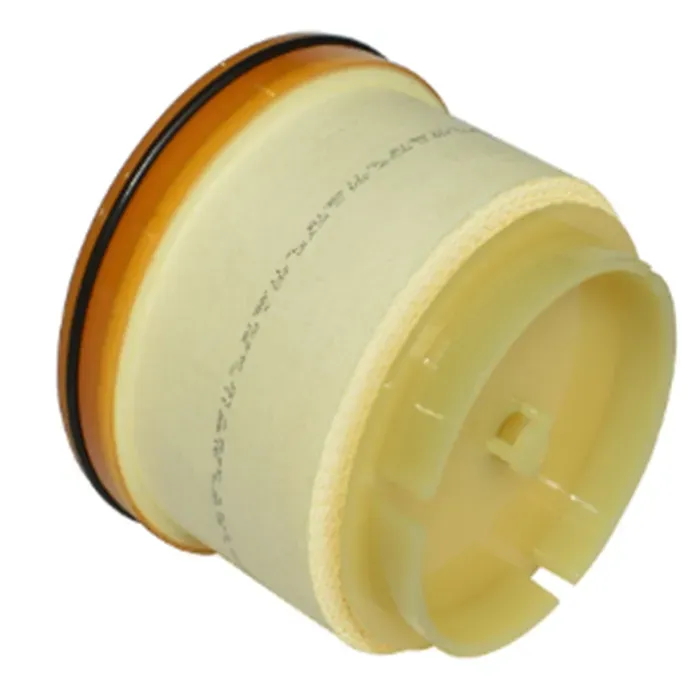maj . 30, 2025 15:50 Tilbage til listen
Air Filter Element: Essential for Your Vehicle’s Health
When it comes to keeping your vehicle running smoothly, few components are as crucial as the air filter element. While it might seem like a small and often overlooked part of your vehicle, the air filter element plays a major role in maintaining engine performance, fuel efficiency, and overall engine life. Whether you're driving a diesel-powered vehicle or a gasoline engine, the air filter element ensures that only clean, filtered air enters the engine, preventing dust, dirt, and debris from damaging internal components. Below, we will explore everything you need to know about the air filter element, why it’s so important, and how to keep it in optimal condition.

What is an Air Filter Element?
The air filter element is a vital part of your vehicle's air intake system. It is designed to trap dirt, dust, pollen, and other contaminants that could enter the engine. Without this filter, these particles would cause serious wear and tear on your engine, affecting performance and longevity. An air filter is typically made from pleated paper or a similar material that is treated to capture particles while allowing a steady flow of air to the engine. The cleaner the air that enters the engine, the better the combustion process, leading to improved fuel efficiency and reduced emissions.
Why is the Air Filter Element Important?
The role of the air filter element in your vehicle is not just about keeping dirt out—it's about maintaining your engine’s performance. A clogged or dirty air filter can restrict airflow to the engine, which reduces its ability to perform efficiently. This means your vehicle will consume more fuel, and the engine will run hotter, leading to potential damage. A clean air filter element also contributes to the health of other components like the fuel system, exhaust, and sensors. The bottom line? Regular maintenance of your air filter element is essential for long-term vehicle performance.
Signs You Need to Replace the Air Filter Element
Knowing when to replace your air filter element can save you from costly repairs down the line. Typically, an air filter needs to be changed every 12,000 to 15,000 miles, but this can vary depending on your driving habits and the environment. If you often drive in dusty or polluted areas, you may need to replace it sooner. Some common signs that indicate your air filter element needs replacement include reduced acceleration, poor fuel economy, and strange engine noises. Additionally, if you notice that your vehicle’s exhaust is emitting more smoke than usual, it’s time to inspect your air filter element.
How to Maintain Your Air Filter Element
Maintaining your air filter element doesn’t require much effort, but it’s crucial for keeping your vehicle running efficiently. One of the simplest ways to maintain it is through regular inspections. If you have the know-how, you can even clean the filter yourself, but in most cases, replacing it is the best option. If your vehicle is equipped with a reusable filter, you can clean it using a special cleaning solution and allow it to dry completely before reinstalling it. Always consult your vehicle’s manual for guidance on proper maintenance procedures for your specific filter type.
Choosing the Right Air Filter Element for Your Vehicle
When it comes to selecting an air filter element, there are numerous options on the market, so it’s important to choose one that best suits your vehicle’s needs. The most common types of air filters are standard paper filters, cotton filters, and foam filters. Paper filters are the most affordable and commonly used, but cotton filters tend to provide better airflow and filtration for performance vehicles. If you’re unsure about which type is best for your car, it’s a good idea to consult a professional mechanic. Always make sure to buy filters that are recommended for your vehicle’s make and model, as using the wrong filter can cause serious damage to your engine.
Air Filter Element FAQs
How often should I replace my air filter element?
Typically, your air filter element should be replaced every 12,000 to 15,000 miles. However, if you drive in dusty or polluted areas, it may need to be replaced more frequently.
What happens if I don’t replace my air filter element?
Failing to replace your air filter element can lead to poor engine performance, decreased fuel efficiency, and potentially serious engine damage due to dirt and debris entering the combustion chamber.
Can I clean my air filter element?
Yes, some air filter elements are reusable and can be cleaned with a special solution. However, most filters should be replaced rather than cleaned, especially if they are paper-based.
Can a dirty air filter affect fuel economy?
Yes, a dirty or clogged air filter element can reduce airflow to the engine, leading to decreased fuel efficiency and increased fuel consumption.
Are aftermarket air filters better than OEM filters?
Aftermarket air filters can provide improved performance, particularly if you have a performance vehicle. However, OEM (Original Equipment Manufacturer) filters are designed specifically for your vehicle and may be the best option for regular maintenance.
Maintaining your vehicle’s air filter element is an easy but vital task that directly impacts your vehicle’s performance, fuel economy, and overall engine health. Regular inspections and timely replacements will ensure that your engine receives the clean air it needs to operate at its best.
-
Why Change Your Car Air Filter?
NyhederJun.23,2025
-
Why Change the Air Filter in Your Car?
NyhederJun.23,2025
-
Toyota Oil Change Tips You Should Follow
NyhederJun.23,2025
-
The Right Oil Filter for Your Car
NyhederJun.23,2025
-
How to Choose the Right Air Filter for Your Car
NyhederJun.23,2025
-
How to Change the Air Filter in Your Toyota Corolla
NyhederJun.23,2025


